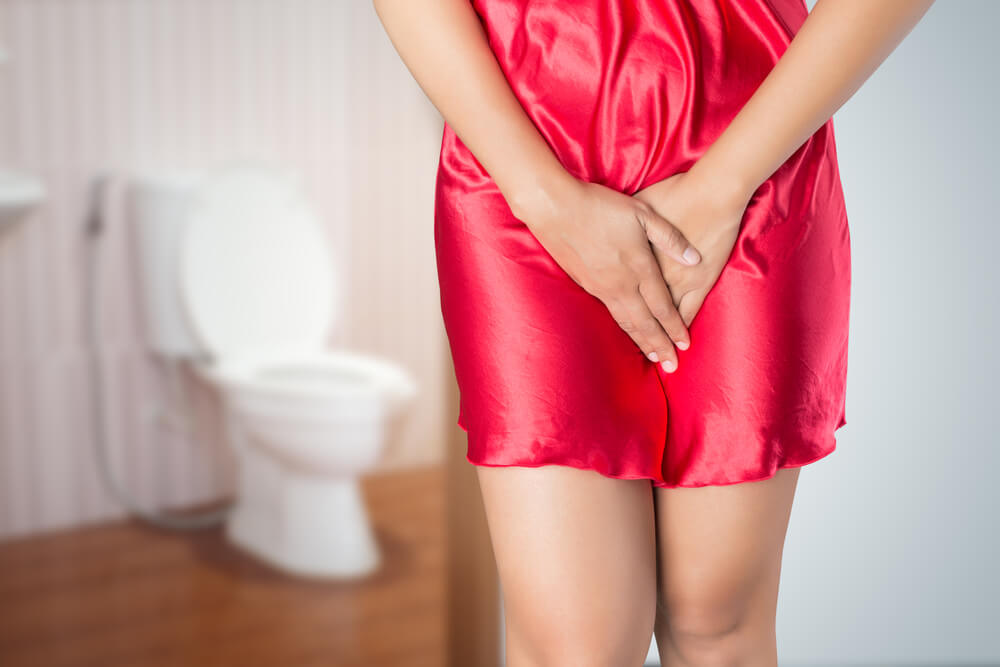Since you’re here, you’re probably wondering how to take care of your vagina the right way. Maintaining vaginal health involves a variety of things. There are multiple steps a woman can take to improve vaginal health, including using protection during sexual intercourse, proper nutrition, exercise, etc.
Vaginal wellness is essential. Indeed, one of the most important things in maintaining vaginal health is regular screening. Regular visits to the gynecologist prevent health problems at all stages of life. So, do not hesitate to schedule an appointment at Doral Beach Gynecology and improve your vaginal health.
What Is the Difference Between the Vagina and Vulva?
People usually use the phrases “vagina” and “vulva” interchangeably. However, these are different terms. Before moving on to the tips for maintaining vaginal health, and how to take care of your vagina, let’s talk about the differences between “vagina” and “vulva.”
What Is a Vagina?
The vagina is also known as the birth canal. The vagina is where menstruation and penetration occur during sexual intercourse, and babies descend during childbirth. The vagina is not visible from the outside.
What Is a Vulva?
The vulva is the outside area of the female genitals – the visible part. It consists of the mons pubis, urethra, clitoris, labia majora, and labia minora.
How to Take Care of Your Vagina?
Keep reading and find some of our tips for maintaining vaginal health.
1. Make a Conscious Effort to Improve Your Overall Health
Overall, health care also affects the reproductive organs. If you eat healthy food, exercise regularly, and maintain a healthy lifestyle, you reduce the risk of chronic diseases and thus prevent genital organs from diseases. Research has shown that chronic conditions can increase the risk of genital infections. Take care of yourself and your health!
2. Regular Visits to the Gynecologist
Getting regular screenings and occasionally seeing a gynecologist is vital for vaginal wellness and health. Pap smears screening intervals vary depending on the age and findings of the previous Pap smears. Usually, doctors suggest that women aged 21-29 should do a Pap test every three years.
For women aged 30-65, doctors suggest repeating Pap tests every five years, while after age 65, women can stop doing Pap tests if all of the previous tests never had an abnormal result.
However, there are some exceptions, and in that case, women should follow instructions on how often to repeat a Pap test. To lower the incidence of cervical cancer, younger women should consider getting the HPV vaccine which has been proven to be beneficial.
In case of any significant abnormality, the gynecologist may refer the patient for further examinations that include colposcopy and ultrasound examination. Regular visits to the gynecologist improve your vaginal health, so don’t forget to put them on your calendar.

3. Protection Is Important
Many unplanned events may occur as a consequence of unprotected sexual intercourse. Sexually transmitted diseases and pregnancies are just some of them.
STDs are infections spread through sexual contact from one person to another. Some of the most common STDs are:
- HIV/AIDS
- chlamydia
- genital herpes
- HPV
- gonorrhea
- syphilis
- trichomoniasis
It is necessary to use a condom during sexual intercourse to protect against these diseases and take care of your vaginal health. Experts also recommend using condoms with new partners to avoid spreading an STD you may not know about at the time.
Different types of condoms are available on the market. So if a latex allergy is stopping you from using them, there are other condom options available for purchase.
4. Water Is Enough
Though many women aren’t aware of it, the vagina is an organ that cleans itself. In most cases, using water is quite enough to maintain a healthy vagina.
It is often mistaken that a healthy vagina involves the use of various chemicals and soaps, but in most cases, their use can have a counter-effect. Using all kinds of chemicals can potentially cause additional problems. Those with sensitive skin should be even more careful while choosing soap and shampoo for the shower.
Have an Appointment With a Gynecologist? No Preparation Is Needed
If you doubt whether you need preparations for a gynecological examination, the answer is: no. All that is expected of the patient before the exam is a shower. Once you’re done with that, you’re good to go.
5. Think About Natural Lubricants
The skin around the genitals can be very sensitive. Therefore you need to think carefully about what type of lubricant you will use.
Some people are prone to various allergies and may need natural lubricants or vaginal moisturizers. If you’re one of them, be careful when buying lubricants since some of them sold in stores contain chemicals that are not suitable for your most sensitive parts.
That way, you will avoid unnecessary irritation and discomfort. In addition, lubricants are one of the options for people who do not use condoms.
Some of the natural lubricants are:
- coconut oil (well-tolerated)
- olive oil
- aloe vera (recommended for people with sensitive skin and genitals since it prevents irritation)
- avocado oil (similar to coconut and olive oil)
Experiencing Postmenopausal Bleeding? See Your Gynecologist.
Bleeding that occurs one year or more after entering menopause isn’t an everyday occurrence and should be taken seriously. In fact, postmenopausal bleeding shouldn’t be ignored, and visit your gynecologist if it happens to you.
This type of vaginal bleeding can be caused by polyps, inflammation, vaginal lining, and vaginal dryness. In about 10% of cases, postmenopausal bleeding is a symptom of uterine cancer.
What Are Prolapses and Incontinence? Are They Dangerous?
Pelvic organ prolapse happens if one or more pelvic organs fall out of their usual position and bulge into the vaginal canal. It could be the uterus, the colon, the bladder, or the top of the vaginal canal.
Although a prolapse is rarely life-threatening, it can be painful and inconvenient. If bladder control seems to be problematic, you’re likely suffering from urinary incontinence.
Both of these health problems are not life-threatening and do not require treatment unless they cause additional issues such as pain, bleeding, or a bladder emptying problem.

6. Think About Vaginal Estrogen
Using vaginal estrogen while you are in menopause can be beneficial. Vaginal estrogen is available in various forms – in a capsule, cream, or tablet.
Its use helps prevent changes that occur with age, such as pain during sexual intercourse. Regardless of the vagina’s ability to keep itself clean, regular care and prevention make a healthy vagina.
Noticing any of the following symptoms means you should consult your gynecologist:
- experiencing any pain during sexual intercourse
- vaginal bleeding not related to menstrual bleeding, as well as bleeding after sex or after you enter a menopause
- a protrusion or lump in your vaginal area
- itching or redness in the vaginal area
It can be said that the vagina does not require much care, but it should certainly not be neglected. Vaginal wellness is an integral part of every woman’s reproductive health, but also an overall healthy lifestyle.
Visit Doral Beach Gynecology and let our experts help you maintain your vaginal health or solve any issues you may have with your special parts.


